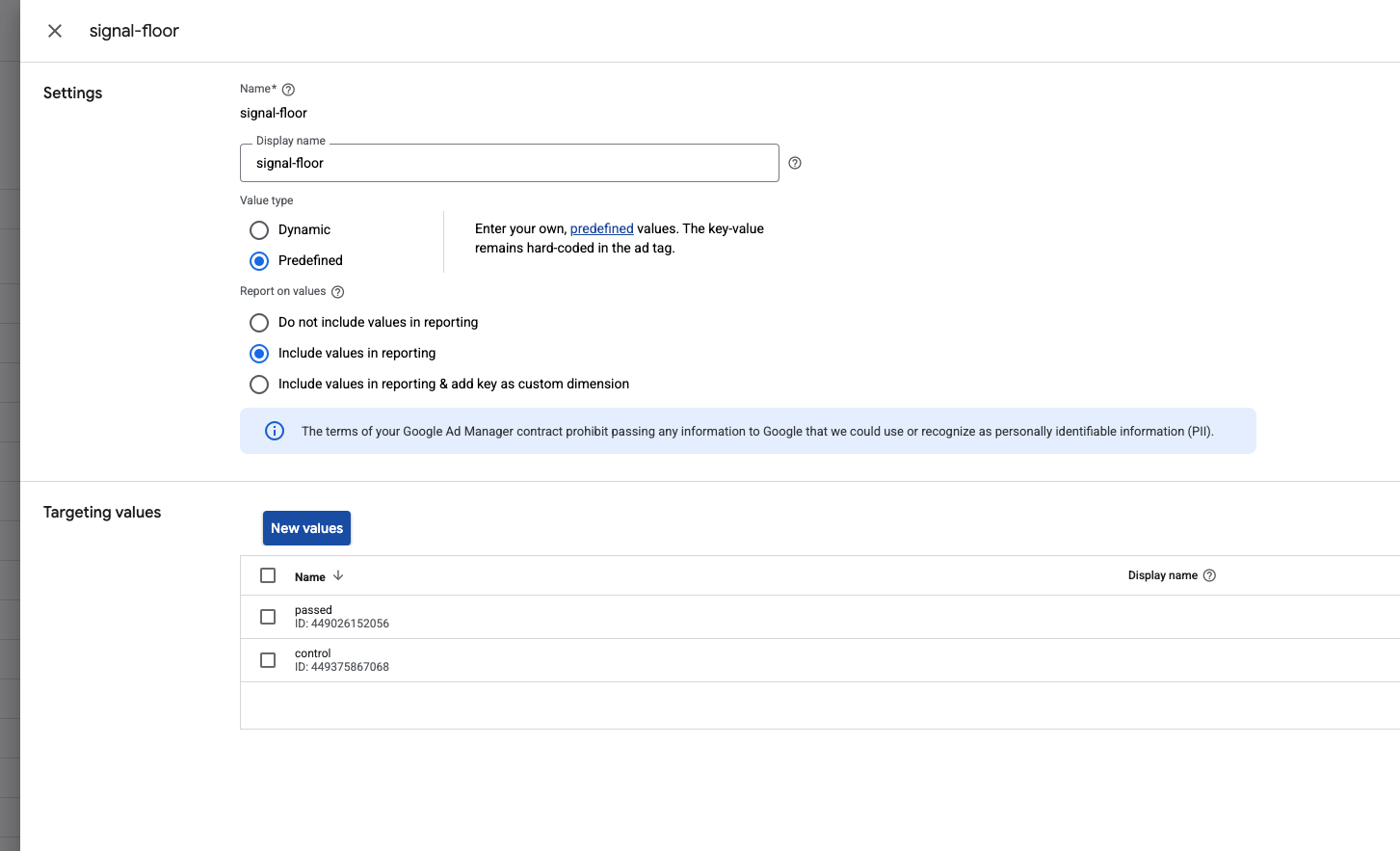Methodology for calculating revenue uplift
To determine revenue uplift, Signal compares the yield performance of a treatment group
(ad requests in the optimized cohort that receive a floor) vs
a control group (ad requests from the optimized group that do not receive a floor).
Yield is defined as the total revenue / total requests (filled + unfilled impressions). The distribution of requests in optimized supply groups is 95% (treatment) / 5% (control).
The control set provides a benchmark for the effective market rate without Signal pricing and provides a baseline to quantify uplift against.
Revenue uplift is determined by applying the control yield across impressions in the treatment group to estimate the expected revenue without Signal’s dynamic pricing. From there, revenue uplift (both as $ and %) can be determined.
Set up Key-values in GAM
Each time Signal passes a floor in the auction, a Key-value (KV) is passed to GAM, which enables publishers to determine yield difference between the treatment and control groups.
When onboarding, you will set up the following values for the key signal-floor:
-
control
-
passed
-
explore-control
-
explore-passed
The explore values will separate the ad units which are in the explore phase, testing a floor for better performance than control. Until our algorithm has found a better floor, only 5% of total traffic will be affected.
This panel can be accessed under Inventory > Key-values.
-
Set Value type to Predefined.
-
Under Report on values select “Include values in reporting“

How to calculate uplift
This spreadsheet outlines how to use these key values to calculate your overall uplift from Signal Dynamic Floors: Example calculation.
Traffic is broken into optimized auctions, where we have found an optimal floor, and explore auctions, where we are still testing floors on a small set of traffic. The impact of these processes are calculated separately and then added together to work out the total impact of Signal Dynamic Floors on your overall revenue.
